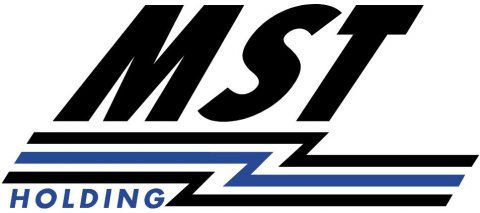In the fast-paced world of the HVAC industry (Heating, Ventilation, and Air Conditioning), there are critical moments throughout the year when companies in this sector must be prepared to handle unexpected and overwhelming demand. Whether it’s in the midst of winter due to an unexpected cold snap or, conversely, during the summer due to a heatwave, customer calls and messages can vary dramatically. The key to maintaining customer satisfaction and ensuring efficient service in these circumstances is proper peak demand management. In this article, we will explore what peak demand management entails in the HVAC sector and why it is crucial to have a reliable partner, such as MST Holding, to successfully implement it.
The Importance of Peak Demand Management in the HVAC Sector
Peak demand in the HVAC sector refers to those moments when the volume of incoming calls or messages at the contact center significantly spikes. These peaks can result from various factors, such as unexpected weather changes, promotional events, or the launch of new products or services. A company’s ability to anticipate, plan for, and effectively manage these peaks can make the difference between success and failure.
Lack of preparedness for these demand peaks can have serious consequences for the business. Customers facing long wait times or experiencing dropped calls can become frustrated and disenchanted. Furthermore, the pressure on agents can lead to burnout and staff turnover, which, in turn, can result in missed business opportunities and loss of customer trust. In summary, inadequate peak demand management can negatively impact operational efficiency and a company’s reputation.
How to Prepare for Demand Peaks During Cold Weather
To be prepared for demand peaks, HVAC companies must take proactive measures. Here are some key strategies that can help mitigate the negative impacts of demand peaks:
Continuous Monitoring and Call Forecasting: Continuous monitoring of trends and call forecasting are essential for anticipating demand peaks. Using historical data and advanced analytical tools, companies can identify seasonal patterns and events that may trigger an increase in HVAC service demand. This enables more accurate planning and allocation of resources to meet demand.
Additional Available Agents: Having a pool of additional agents available during peak demand times is essential. This can be achieved through hiring temporary staff or implementing a backup team ready to step in during high-demand situations.
Ongoing Team Training: Continuous training of agents is crucial to ensure they are prepared to handle a variety of customer situations and demands. Training should focus on problem-solving, effective communication, and the use of specific tools and systems.
Utilization of Technology: Technology can be a powerful ally in peak demand management. Companies can implement call management systems, chatbots, and automation to streamline customer interactions and reduce the workload on agents during high-demand periods.
Remote Agent Activation: Enabling solutions that allow agents to work remotely is essential in crisis situations, such as the COVID-19 pandemic. This ensures that agents can continue to provide support even when they cannot be at the company’s physical location.
Outsourcing Customer Service in the HVAC Sector
In addition to peak demand management, there are several additional benefits to outsourcing customer service in the HVAC sector. These benefits include:
Cost Savings: Outsourcing customer service can be more cost-effective than maintaining an in-house customer support team. Companies can reduce costs related to hiring, training, and technological infrastructure by partnering with an external provider.
Consistently Trained and Prepared Staff: External service providers, such as MST Holding, often have highly trained and experienced teams in the HVAC sector. This ensures that there is always prepared staff available to provide high-quality service to customers.
Enhanced Service Efficiency: Outsourcing customer service allows companies to focus on their core operations while relying on experts to manage customer interactions. This can improve operational efficiency and enable a more strategic focus on the business.
Improved Customer Satisfaction and Customer Experience (CX): By outsourcing customer service, companies can ensure consistent, high-quality attention to customers, which, in turn, enhances customer satisfaction and the overall customer experience (CX). Satisfied customers are more likely to remain loyal to a brand and recommend it to others.
Conclusion
In today’s competitive world, peak demand management is essential for all companies, regardless of their industry, operational model, or location. Effective peak demand management not only ensures customer satisfaction but can also save additional costs and increase brand loyalty. At MST Holding, we are experts in HVAC service management and peak demand management. Our expertise and agile approach make us the ideal partner to help companies successfully navigate the challenges of the cold season and beyond. We are committed to delivering exceptional service and assisting companies in achieving their goals.

